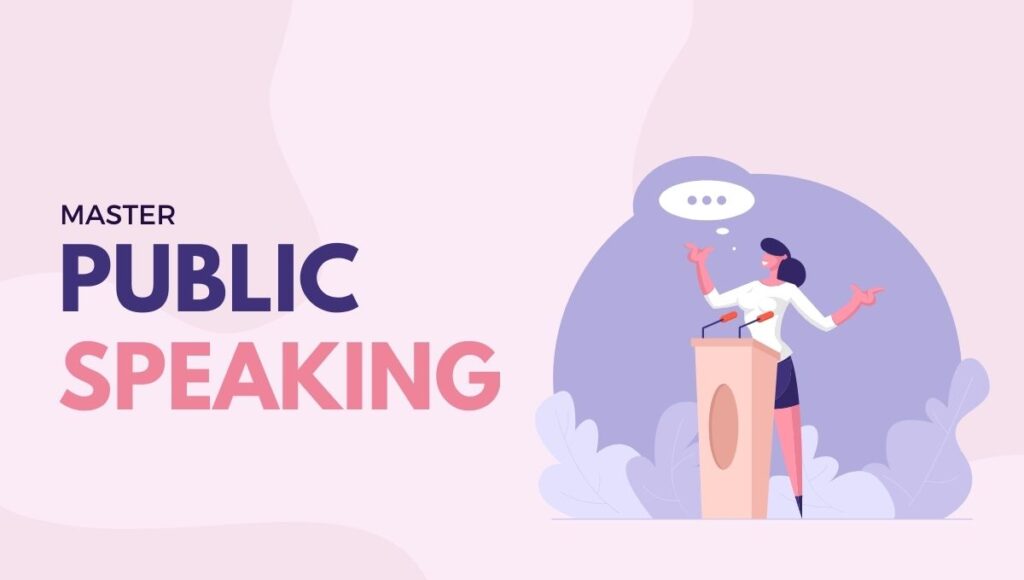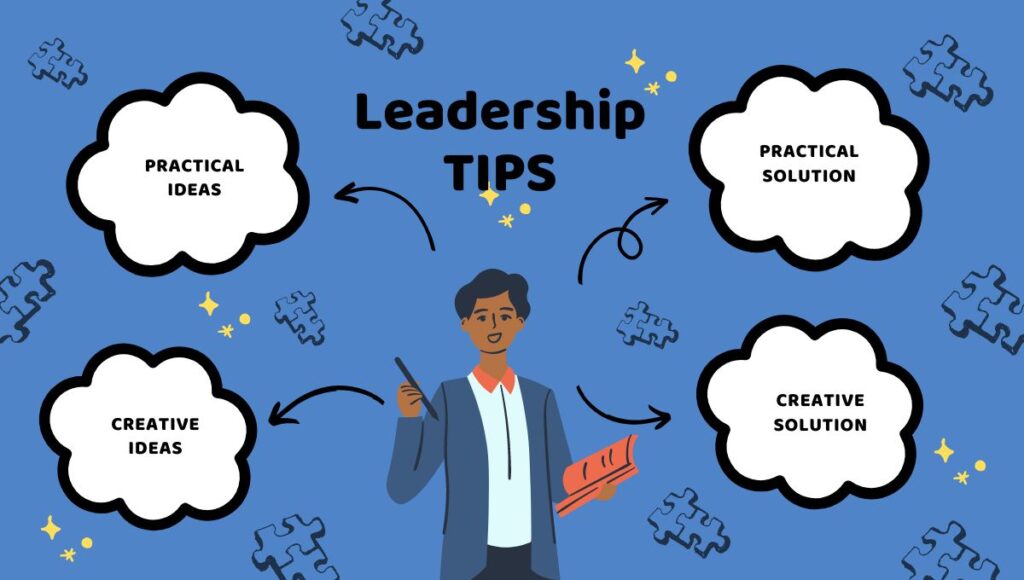How to Negotiate Like a Pro: 5 Secrets of Successful Negotiators

Have you ever wondered how some people can negotiate anything and get what they want? Whether it’s a salary raise, a discount, or a contract, they seem to have the skills and the confidence to persuade anyone. How do they do it?
Negotiation is a skill that can help you achieve your goals, whether it’s in business, career, or personal life. But how do you negotiate like a pro? What are the secrets of successful negotiators?
In this blog post, you will learn five tips that will help you improve your negotiation skills and get the best possible outcomes. You will also learn from my personal experience as a blogger and a freelancer who has negotiated with clients, sponsors, and collaborators.
By the end of this post, you will be able to negotiate like a pro and get what you deserve. So, let’s get started!
What is Negotiation and Why is it Important?
Negotiation is a process of communication between two or more parties who have different interests, needs, or preferences and want to reach an agreement that is acceptable to all.
Negotiation is important because it can help you:
- Achieve your goals and objectives
- Build trust and rapport with others
- Resolve conflicts and disputes
- Create value and opportunities
- Enhance your reputation and credibility
Negotiation is not only about getting what you want but also about finding a win-win solution that benefits both sides.
However, negotiation is not easy. It requires preparation, strategy, skills, and mindset. It also involves emotions, power dynamics, and ethical dilemmas.
That’s why you need to learn the secrets of successful negotiators who can handle any situation and get the best results.
Secret 1: Prepare Well

The first secret of successful negotiators is to prepare well. Preparation is key to successful negotiation because it helps you:
- Understand the situation and the context
- Research the other party and their needs, interests, and alternatives
- Set your goals, priorities, and reservation point
- Plan your strategy, tactics, and communication style
Let me give you an example of how I prepared for a negotiation with a potential sponsor for my blog.
I wanted to get a sponsorship deal with a company that sells online courses on various topics. I knew that they were looking for bloggers who could promote their courses to their audience. I also knew that they had a budget and a timeline for their campaign.
Before I contacted them, I did some research on their company, their courses, their target audience, their competitors, and their previous sponsors. I also checked their website, social media, and reviews to get a sense of their reputation and quality.
Based on my research, I set my goals and priorities for the negotiation. I wanted to get fair compensation for my work, a long-term partnership, and a creative freedom to promote their courses in my own style. I also decided on my reservation point, which was the minimum amount and conditions that I would accept.
Next, I planned my strategy and tactics for the negotiation. I decided to use a collaborative approach that focused on creating value and building trust. I also prepared some persuasive arguments and evidence to support my proposal. I also thought of some possible objections and questions that they might have and how I would respond to them.
Finally, I planned my communication style for the negotiation. I wanted to be confident, respectful, and friendly. I also wanted to use active listening, empathy, and open-ended questions to understand their perspective and emotions.
By preparing well, I was able to negotiate like a pro and get a great deal with the sponsor.
Secret 2: Build Rapport

The second secret of successful negotiators is to build rapport. Rapport is the feeling of connection, trust, and respect that you have with someone. Rapport is essential to successful negotiation because it helps you:
- Establish a positive and cooperative relationship with the other party
- Reduce tension and conflict
- Increase influence and persuasion
- Enhance satisfaction and loyalty
Take my example of how I built rapport with a client who wanted me to write a blog post for them.
I contacted them via email and introduced myself as a professional blogger who specializes in their niche. I also complimented them on their website and expressed my interest in working with them.
I then scheduled a phone call with them to discuss the details of the project. During the call, I used active listening, empathy, and open-ended questions to understand their needs, interests, and preferences. I also used positive body language, eye contact, and tone of voice to convey confidence and sincerity.
I also shared some personal information about myself, such as my hobbies, passions, and goals. I also asked them about theirs and found some common ground. I also used humor, stories, and anecdotes to make the conversation more enjoyable and memorable.
By building rapport, I was able to create a strong bond with the client and get them to trust me and hire me for the project.
Secret 3: Focus on Interests, Not Positions

The third secret of successful negotiators is to focus on interests, not positions. Interests are the underlying reasons why you want something or why you do something. Positions are the specific demands or requests that you make or accept. Focusing on interests, not positions, is crucial to successful negotiation because it helps you:
- Identify the real issues and problems that need to be solved
- Communicate your needs and expectations clearly and respectfully
- Explore options that can satisfy both parties’ interests and create value
- Avoid getting stuck in a win-lose situation or a compromise
Let me tell you how I focused on interests, not positions, when I negotiated with a collaborator for my blog.
I wanted to collaborate with another blogger who had a similar niche and audience as mine. We agreed to write guest posts for each other’s blogs and cross-promote them on our social media platforms.
However, we had different positions on how long the guest posts should be. I wanted them to be at least 3000 words long, while they wanted them to be no more than 2000 words long.
Instead of arguing over our positions, we tried to understand each other’s interests behind them. I realized that they wanted shorter posts because they were busy and had limited time to write. They realized that I wanted longer posts because I wanted to provide more value and information to my readers.
We then looked for options that could meet both of our interests. We decided to write posts that were around 2500 words long, which was a reasonable length for both of us. We also agreed to use bullet points, subheadings, images, and links to make the posts more readable and engaging.
By focusing on interests, not positions, we were able to find a win-win solution that satisfied both of us.
Secret 4: Be Flexible, But Not Too Flexible

The fourth secret of successful negotiators is to be flexible, but not too flexible. Flexibility is the ability to adapt to changing circumstances and to make adjustments in your negotiation strategy, tactics, or expectations. Flexibility is important to successful negotiation because it helps you:
- Deal with uncertainty and unpredictability
- Respond to new information and feedback
- Explore creative and innovative solutions
- Show respect and willingness to cooperate
However, being too flexible can also be a problem. It can make you:
- Lose sight of your goals and priorities
- Give up too much or too soon
- Appear weak or desperate
- Invite exploitation or manipulation
Let me give you an example of how I was flexible, but not too flexible when I negotiated with a reader who wanted me to write a blog post for them.
They contacted me via email and asked me if I could write a blog post on a topic that was related to my niche, but not exactly what I usually write about. They also offered me a price that was lower than my usual rate.
I was interested in the opportunity, but I also had some concerns. I wanted to write about something that I was passionate about and that matched my brand. I also wanted to get paid fairly for my work.
I decided to be flexible, but not too flexible, in the negotiation. I agreed to write about the topic, but I asked them if I could add my own twist and perspective to it. I also agreed to lower my price, but only by a small margin and with some conditions.
I explained to them that writing about the topic would require more research and time than my usual posts. I also told them that lowering my price would affect the quality and length of the post. I suggested that we could compromise on both aspects and find a middle ground.
By being flexible, but not too flexible, I was able to negotiate like a pro and get a decent deal with the reader.
Secret 5: Close the Deal

The fifth and final secret of successful negotiators is to close the deal. Closing the deal is the process of finalizing and confirming the agreement that you have reached with the other party. Closing the deal is vital to successful negotiation because it helps you:
- Seal the deal and secure the benefits
- Avoid misunderstandings and disputes
- Build trust and credibility
- Establish a long-term relationship
I took this step very carefully when I closed the deal with a guest blogger who wanted to write a blog post for me.
I agreed to let them write a guest post for my blog on a topic that was relevant and interesting to my audience. We also agreed on the terms and conditions of the collaboration, such as the deadline, the word count, the format, the links, and the promotion.
Before I accepted their guest post, I made sure to close the deal properly. I did the following steps:
- I summarized the main points of agreement and clarified any outstanding issues or details.
- I confirmed the deal in writing and sent them a contract that outlined the agreement and the obligations of both parties.
- I followed up with them regularly and provided feedback and support until they delivered their guest post.
- I thanked them for their work and praised them for their quality and professionalism.
- I promoted their guest post on my blog and social media platforms and encouraged them to do the same.
By closing the deal properly, I was able to negotiate like a pro and get a great guest post for my blog.
Conclusion

Negotiation is a skill that can help you achieve your goals, whether it’s in business, career, or personal life. But how do you negotiate like a pro? What are the secrets of successful negotiators?
In this blog post, you learned five tips that will help you improve your negotiation skills and get the best possible outcomes. They are:
- Prepare well
- Build rapport
- Focus on interests, not positions
- Be flexible, but not too flexible
- Close the deal
By applying these tips, you will be able to negotiate like a pro and get what you deserve.
I hope you found this blog post helpful and informative. If you did, please share it with your friends, family, and colleagues who might benefit from it.
Also, if you have any questions, comments, or feedback related to negotiation or this blog post, please feel free to leave them below. I would love to hear from you and answer your queries.
Thank you for reading this blog post and happy negotiating!
FAQs
What are some common negotiation mistakes that people make?
Some common negotiation mistakes that people make are:
- Not preparing well
- Not building rapport
- Focusing on positions, not interests
- Being too rigid or too flexible
- Not closing the deal properly
What are some negotiation styles or approaches that people use?
Some negotiation styles or approaches that people use are:
- Competitive: This style is based on winning and getting the best deal for yourself, even at the expense of the other party. It is often aggressive, assertive, and dominant.
- Collaborative: This style is based on finding a win-win solution that benefits both parties. It is often cooperative, respectful, and creative.
- Compromising: This style is based on finding a middle ground that satisfies both parties to some extent. It is often pragmatic, flexible, and quick.
- Avoiding: This style is based on avoiding or postponing the negotiation or the conflict. It is often passive, indifferent, or fearful.
- Accommodating: This style is based on giving in or sacrificing your interests for the sake of the other party. It is often submissive, generous, or selfless.
What are some negotiation techniques or tools that people use?
Some negotiation techniques or tools that people use are:
- BATNA: This stands for Best Alternative To a Negotiated Agreement. It is the best option that you have if you walk away from the negotiation. It helps you determine your reservation point and your bargaining power.
- ZOPA: This stands for Zone Of Possible Agreement. It is the range of outcomes that are acceptable to both parties. It helps you identify the potential value and options in the negotiation.
- Anchoring: This is the process of setting a reference point or a starting point for the negotiation. It helps you influence the expectations and perceptions of the other party.
- Framing: This is the process of presenting or interpreting information in a certain way that affects how it is perceived and valued. It helps you shape the narrative and the emotions of the negotiation.
- Nibbling: This is the process of asking for or giving small concessions or extras at the end of the negotiation. It helps you increase your value or satisfaction without affecting the main agreement.
How can I improve my negotiation skills?
You can improve your negotiation skills by:
- Reading books, articles, blogs, or podcasts on negotiation
- Taking courses, workshops, or seminars on negotiation
- Practicing your negotiation skills with friends, family, or colleagues
- Seeking feedback and advice from experts or mentors on negotiation
- Reflecting on your strengths and weaknesses as a negotiator
How can I negotiate online or remotely?
You can negotiate online or remotely by:
- Using reliable and secure technology and platforms
- Establishing clear and frequent communication channels
- Building rapport and trust with the other party
- Being respectful and professional
- Being prepared and organized
How can I negotiate with difficult people?
You can negotiate with difficult people by:
- Understanding their personality and motivation
- Being calm and patient
- Focusing on facts and logic
- Using empathy and emotional intelligence
- Seeking common ground and mutual benefits
How can I negotiate with different cultures?
You can negotiate with different cultures by:
- Researching their culture and values
- Being aware of your own culture and biases
- Respecting their norms and etiquette
- Adapting your style and approach
- Being open-minded and curious
How can I negotiate for a salary raise?
You can negotiate for a salary raise by:
- Preparing a strong case for your value and contribution
- Researching the market rate and your employer’s budget
- Timing your request strategically
- Asking for a specific and realistic amount
- Negotiating other benefits or perks
How can I negotiate for a discount?
You can negotiate for a discount by:
- Comparing prices and alternatives
- Asking for a discount politely and confidently
- Providing a reason or justification for your request
- Being flexible and willing to compromise
- Showing appreciation and gratitude
How can I negotiate for a better deal?
You can negotiate for a better deal by:
- Knowing your goals and priorities
- Exploring options and creating value
- Making trade-offs and concessions
- Asking for more or better terms
- Closing the deal properly



